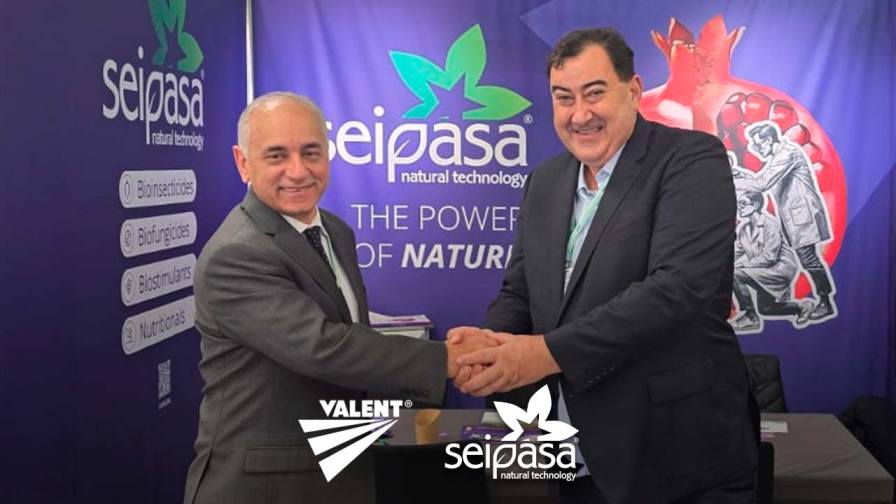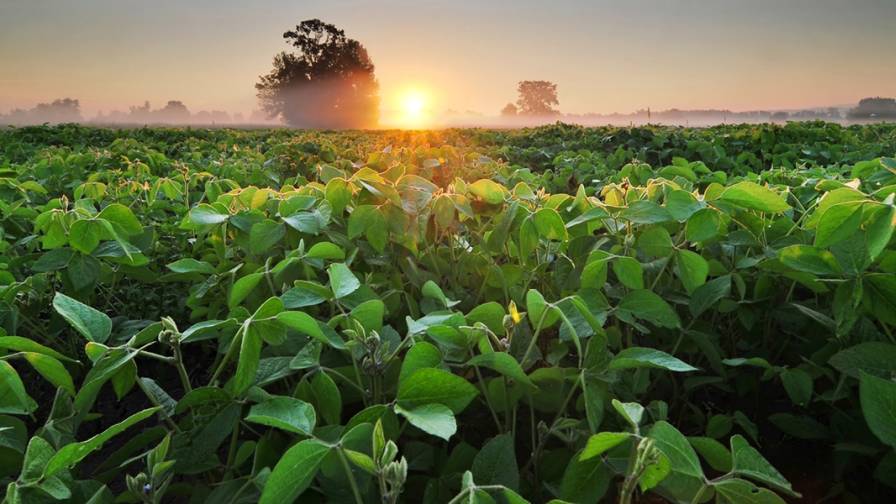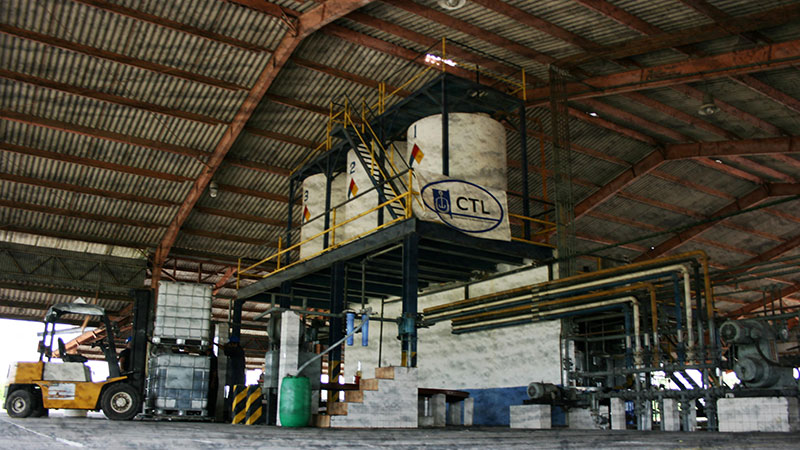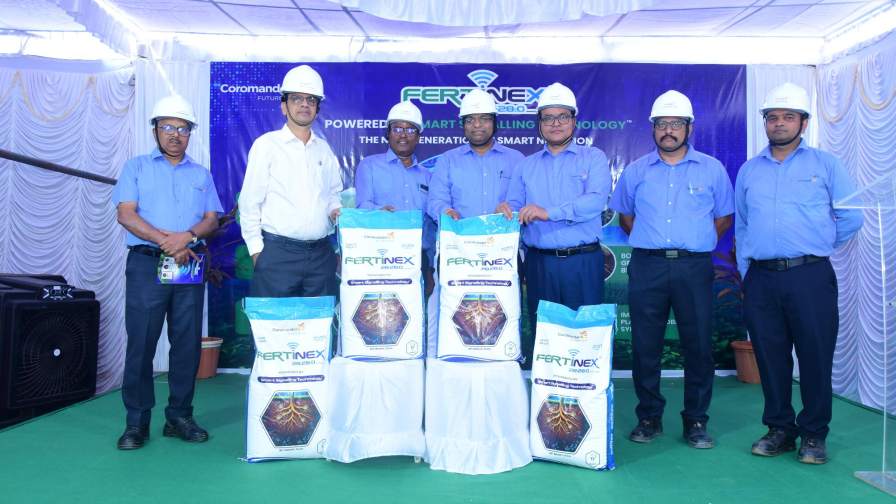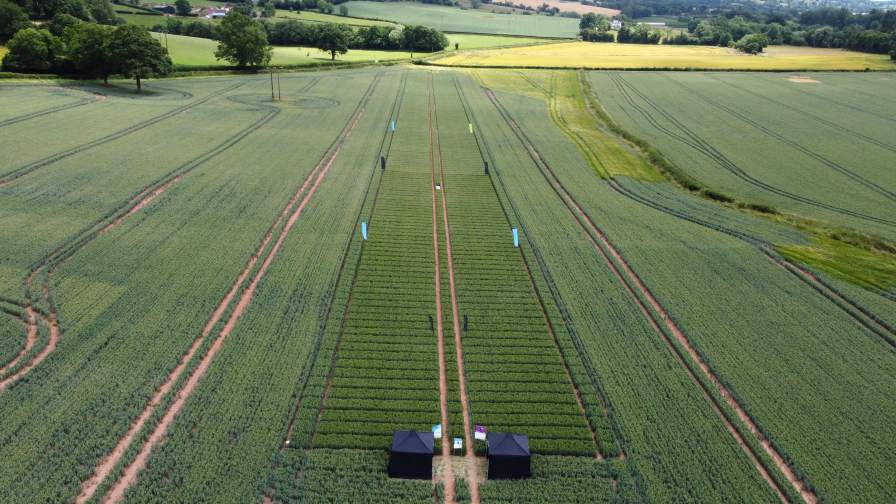Amid the Coronavirus Outbreak, Mosaic Works to Ensure Employee Safety and Secure its Supply Chain
In the face of business disrupting Covid-19, The Mosaic Company has two objectives: Keep employees safe and the supply chain intact.
The integrated producer and marketer of concentrated phosphate and potash has 13,000 employees and operations across six continents including China where coronavirus first appeared. Though the company’s operation in that country wasn’t near the epicenter, it was shut down for a time, and the management team gained insight on how to deal with the pandemic from watching what was happening there.

Rick McLellan, SVP, Commercial at Mosaic
“We did learn from them about the things we can do in offices to make sure people are connected and talking with customers,” says Rick McLellan, SVP, Commercial at Mosaic. “It did help educate on what we could have to deal with. We looked at putting systems in place. We looked at alternating shifts at our production facilities, so that we can be sure that groups that work together if we have a portion of our facility or one of the offices has something happen, we’ve got shifts that have not had anything happen and we can pull people in.”
Minimizing Disruption
When employees have returned from vacation or any that have shown symptoms were required to self-quarantine for 14 days. Before the shelter in place order was enacted in Florida, the company instituted a plan for its Tampa-based headquarters. Management took a cross-section of disciplines and created two teams. One team worked Monday and Tuesday in the office, which was then thoroughly sanitized Tuesday night before the second team came in to work Wednesday and Thursday. Friday was a mandatory close day.
“I can’t say there hasn’t been disruption, but I wouldn’t say there is radical disruption,” McLellan says. “We’re seeing small pieces of it around the world as countries react to how they’re going to deal with the coronavirus. India is a good example. They announced a 21-day almost complete shutdown of the country. All of a sudden, ports are saying, ‘we’re not going to receive fertilizer; we’re not going to receive anything. We’re going to shut down.’ Immediately, the government issues an order on essential, critical infrastructure — fertilizer, food stuffs, and oil are critical. Products are unloading.
As new orders come into place there may be a natural disruption that takes place, but overall food needs to move. And products that help in the production of food, need to move.”
Mosaic has seen a few interruptions among its workers, but so far nothing major.
“We’re doing things to separate our people, so if something does happen, we can still maintain our business,” McLellan says. “That has worked well for us.” Once the lockdown order was instituted requiring everyone to work from home, we worked like much of the rest of the world with online meeting applications.
Securing the Supply Chain
Of course, in the ag industry business can only continue to operate if their suppliers and customers are still operating. Mosaic is no exception.
“We’re working with key suppliers to make sure supply chain will continue to flow into our facilities — rail lines, barge lines, trucking, raw material suppliers,” McLellan says. “We’ve been spending time making sure those supply chain lines, both in and out of our facilities are working properly, so we can get the products we produce to the Midwest, to the East, or to vessels to ship to Brazil, most of South America, and Central America out of Florida and out of Canada where we have our potash mines.”
This is a particularly critical time as North America heads into planting season.
“We’re pleased with where we’re at and how things are working,” McLellan says. “Our operations around the world are considered critical infrastructure because we’re involved in agriculture/food production even though we mine phosphates and potash.”
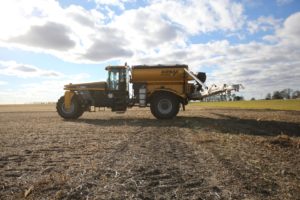 Community Support
Community Support
The company has also made a conscientious effort to support the communities around the world in various ways. Here are a couple of examples: “In Saskatchewan, we work with food banks to make sure those who don’t have food are getting food and more importantly medical supplies,” McLellan says. “We use a lot of PPE (personal protective equipment) in our business working with the local health community to make sure that any extra we move to them. In Florida, we work with food banks to make sure they’re supported. In China, we deal in rural areas and a lot of times, farmers were not thought about in this process. (With) one of our business partners there — we provided masks to the rural communities. These are little things. The importance of supporting where our people live is critical.”
Mosaic looks at this issue as a speed bump, a temporary hindrance to normal business operations. But that doesn’t mean there won’t be differences once we come out the other side.
“I don’t think something like this happens without change coming from it,” McLellan says. “Farmers need to continue to operate. Food demand probably will change coming away from this. The one thing as we go through the last 50 years, no matter what the economy the demand for grains, oil, seeds, proteins grows about 2% a year, no matter what — through some pretty significant recessions. That can’t stop.”
And so far, for Mosaic, it hasn’t.
“As we look at the business overall, this whole situation is really dynamic,” McLellan says. “It’s all over the world; it’s hard for people to predict. We think we’ve done the things to keep our business operating and to support our customers during this period. Those are the important things — continue the production, focus on our communities and ensuring that we get our product to the people who deal directly with the farmers.”

